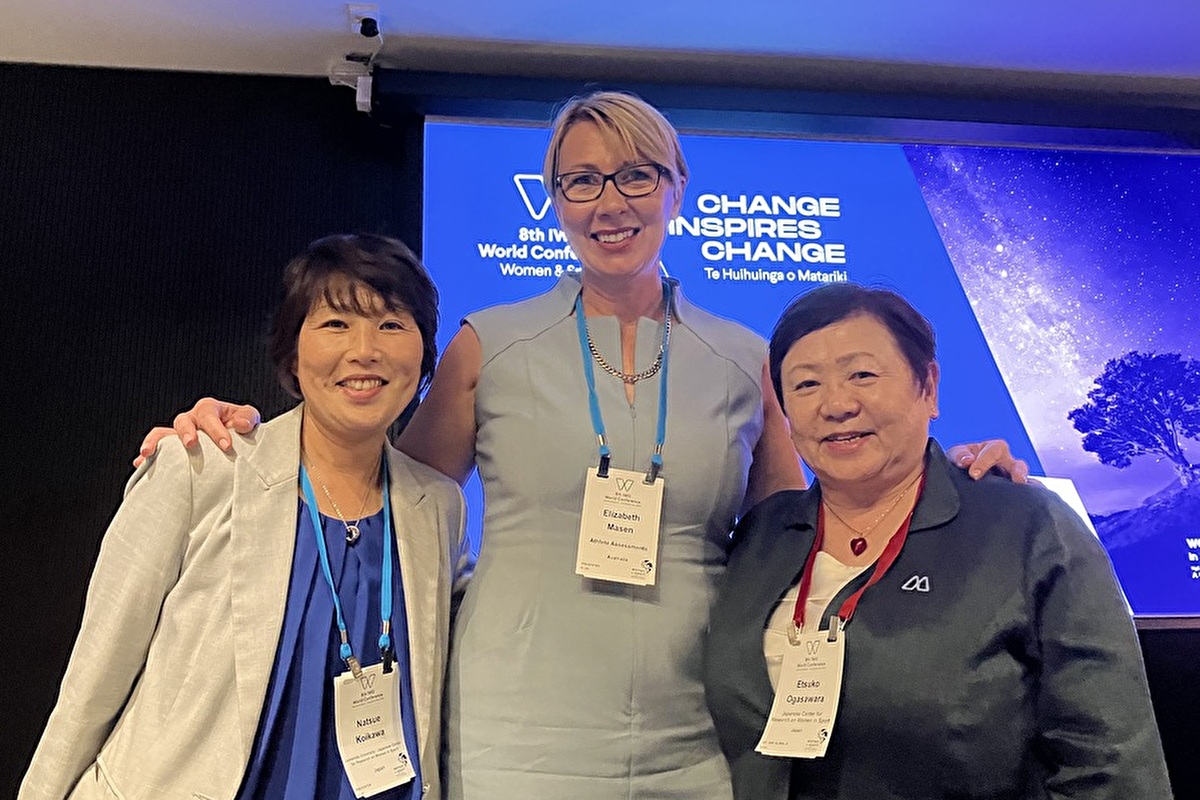
Approaching issues surrounding female athletes from a research perspective
Japanese Center for Research on Women in SportDr. Etsuko Ogasawara

Approaching issues surrounding female athletes from a research perspective
Founded in 2014, the Japanese Center for Research on Women in Sport (JCRWS) serves as a hub for research aimed at supporting female athletes and enhancing the environment for women’s sport. With a focus on women and sport, the JCRWS has made significant research contributions in three key missions: conditioning, coaching, and exercise habits. We spoke to Executive Director Etsuko Ogasawara about the JCRWS’s activities, which have garnered attention from organizations and government agencies both in Japan and abroad.
JCRWS is a research hub dedicated to supporting female athletes at all stages, from junior high school students in sport club activities to top athletes representing Japan, and is inclusive of all ages. Its goal is to help these individuals compete at their best, thereby contributing to the enhancement of Japan’s competitive ability and promoting sport participation.
In recent years, the gender gap in sport seems to be narrowing. Females are now actively participating in sport activities that were once male-dominated, like soccer and baseball. However, female athletes still face many issues. Life events to women, such as marriage, pregnancy, childcare, and caregiving, often lead to numerous female athletes abandoning their competitive careers.
To address these issues and support female athletes and leaders through a research-driven approach, JCRWS is advancing research in three key directions: 1. Further develop research on “conditioning of female athletes,” 2. Formulating strategies to conduct “research on the development of female leaders and promotion of sport participation,” and 3. Advancing “research that contributes to improved health and performance for all women”. Additionally, JCRWS is also involved in conducting foundational research focused on “Genetic and Environmental Research of Exercise Performance on Women”, in collaboration with the Juntendo University Graduate School of Health and Sports Science, the Juntendo Administration for Sports (JASMS), and the Graduate School of Medicine.
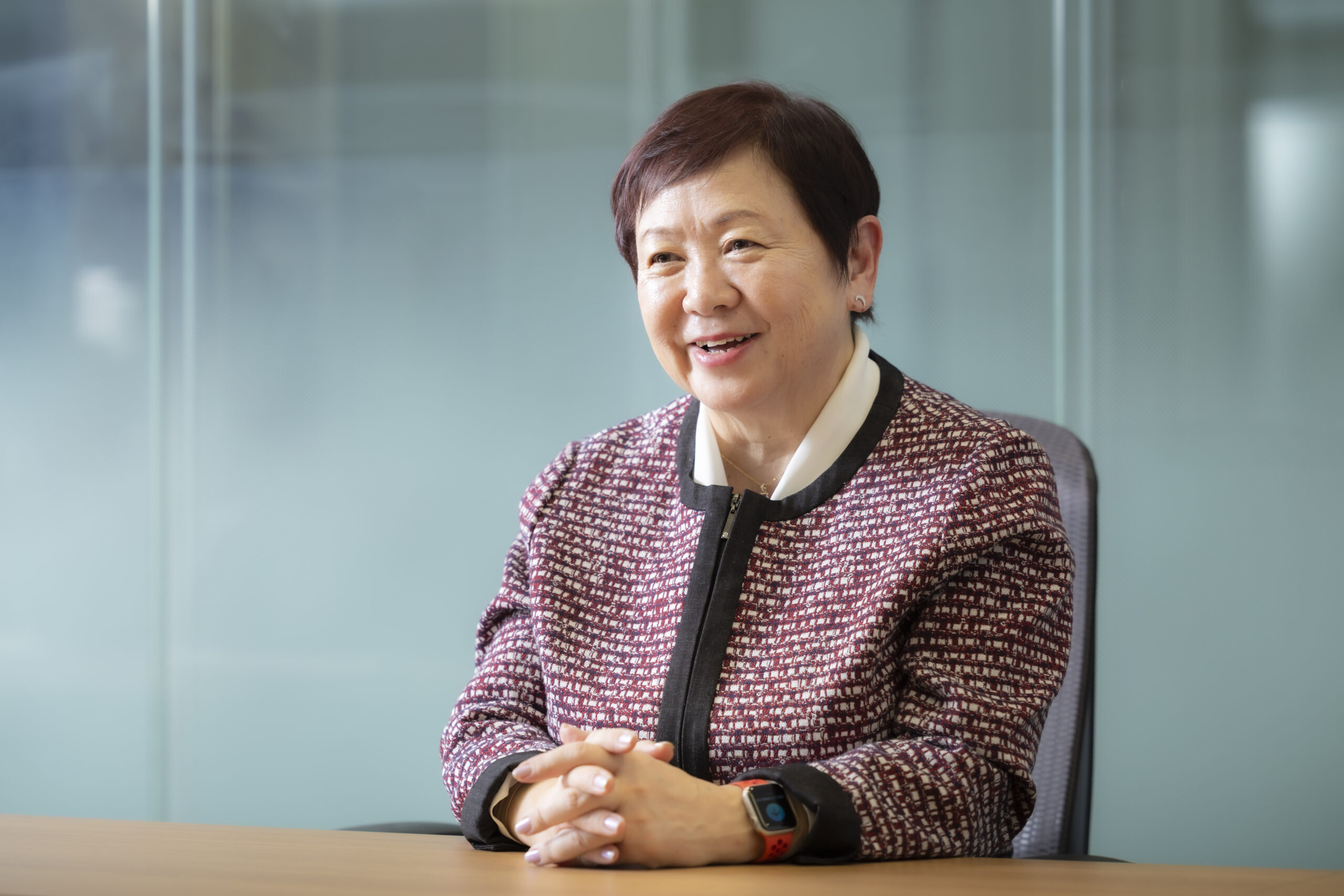
“Conditioning” for female athletes is the central research focus of the institute, right from its inception. While many female athletes have gained significant success by earning medals at the Olympics and Paralympics, there have been cases where the pursuit of high-level performance has come at the expense of their health. Unfortunately, these issues aren’t just limited to elite athletes but also arise in junior and senior high school club activities.
Specifically, if female athletes fail to maintain a balanced diet despite increased training intensity, they are at risk for “Low Energy Availability”, “Functional hypothalamic amenorrhea”, and “Osteoporosis”, collectively known as the Female Athlete Triad (FAT). The FAT state is common among female athletes and can seriously impact their careers and health, making its early detection and intervention crucial. Until recently, Japan lacked an effective FAT screening tool.
To address this, we first classified Japanese junior and high school girls into athletes and non-athletes and surveyed the risk of FAT. The results showed a significantly higher risk among athletes. Based on the data, we developed the Japanese FAT Screening Sheet (J-FATS) to detect early signs or susceptibility to FAT. By using this sheet, athletes and coaches can assess their condition. In 2021, we also launched an online health check tool called “Pre-participation Physical Evaluation for female athletes (PPE)” for a more detailed self-assessment.
To support female athletes effectively, expert guidance from coaches and leaders is essential. However, in Japan, most upper-level positions and coaching roles in sports are held by men, with very few female leaders and coaches. This is due to the lack of a supportive environment for training female coaches in Japan.
The lack of female coaches is a priority issue in sport and we have conducted various studies to address it. We published the report “Report on Strategic Support Measures for Strengthening Female Athletes,” summarizing the results of various interview surveys, and also translated the Canadian Coaching Association’s book Taking the Lead (a guide for female coaches), into Japanese and edited the “Essence Edition”. In FY 2015, we launched the “Women Leaders Academy,” a 2-night, 3-day coaching and training academy, held in Karuizawa. It is the only annual initiative in Japan where top experts from across the globe deliver lectures and implement a program based on scientific research. Modeled after a successful American initiative, the academy is tailored for Japan, with instructors, including myself, trained in cutting-edge coaching theories from the United States.
A total of 275 individuals have graduated from the academy over nine terms by FY2023, including several of them who participated as athletes, managers, coaches, or support staff in the 2020 Tokyo Olympic and Paralympic Games. Inspired by their experiences at the academy, graduates from a wide age range, from 20s to 50s, have continued their studies at our university’s graduate school and are still actively pursuing research. This has created an immeasurable ripple effect, contributing to the ongoing development of female leaders in sport.
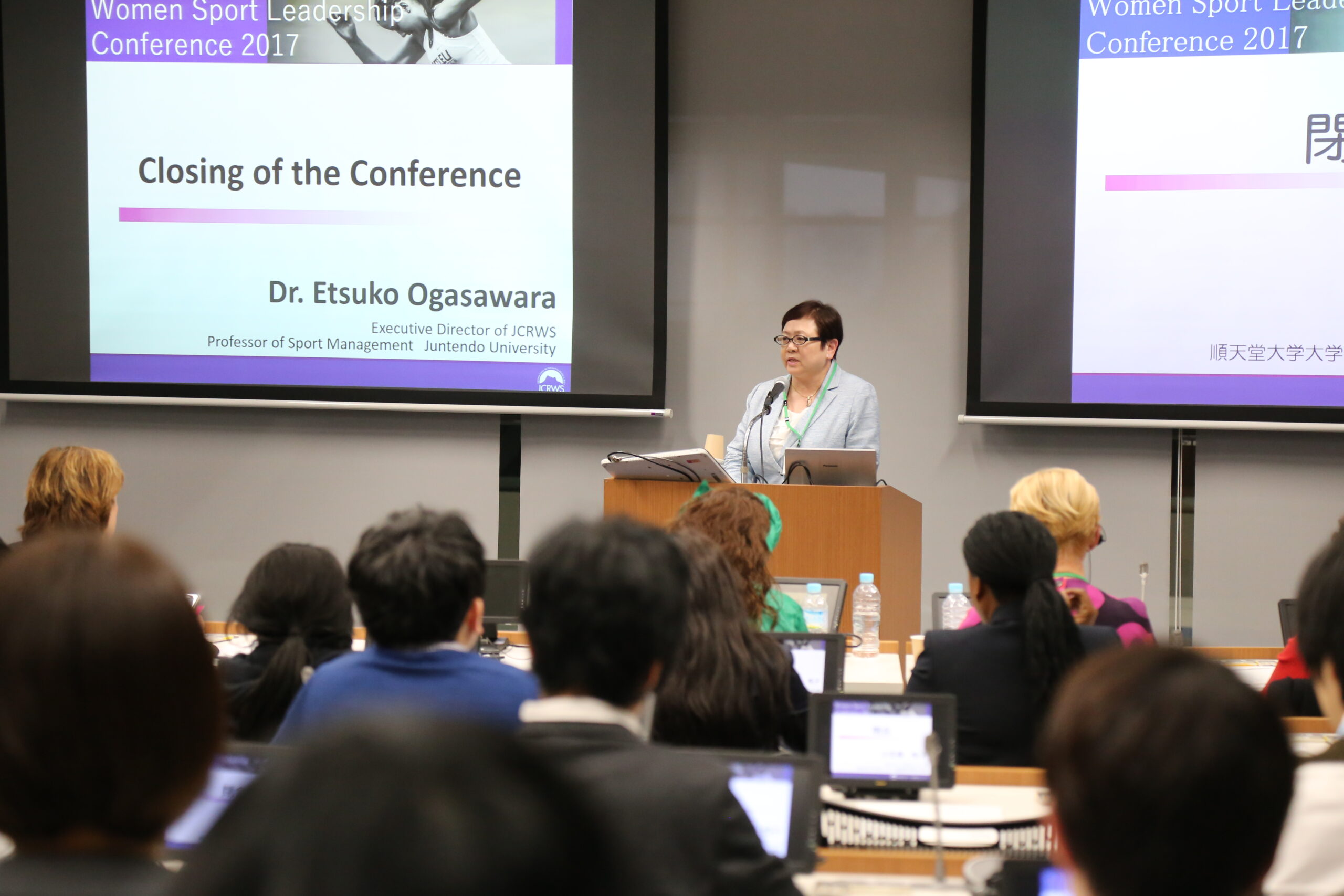
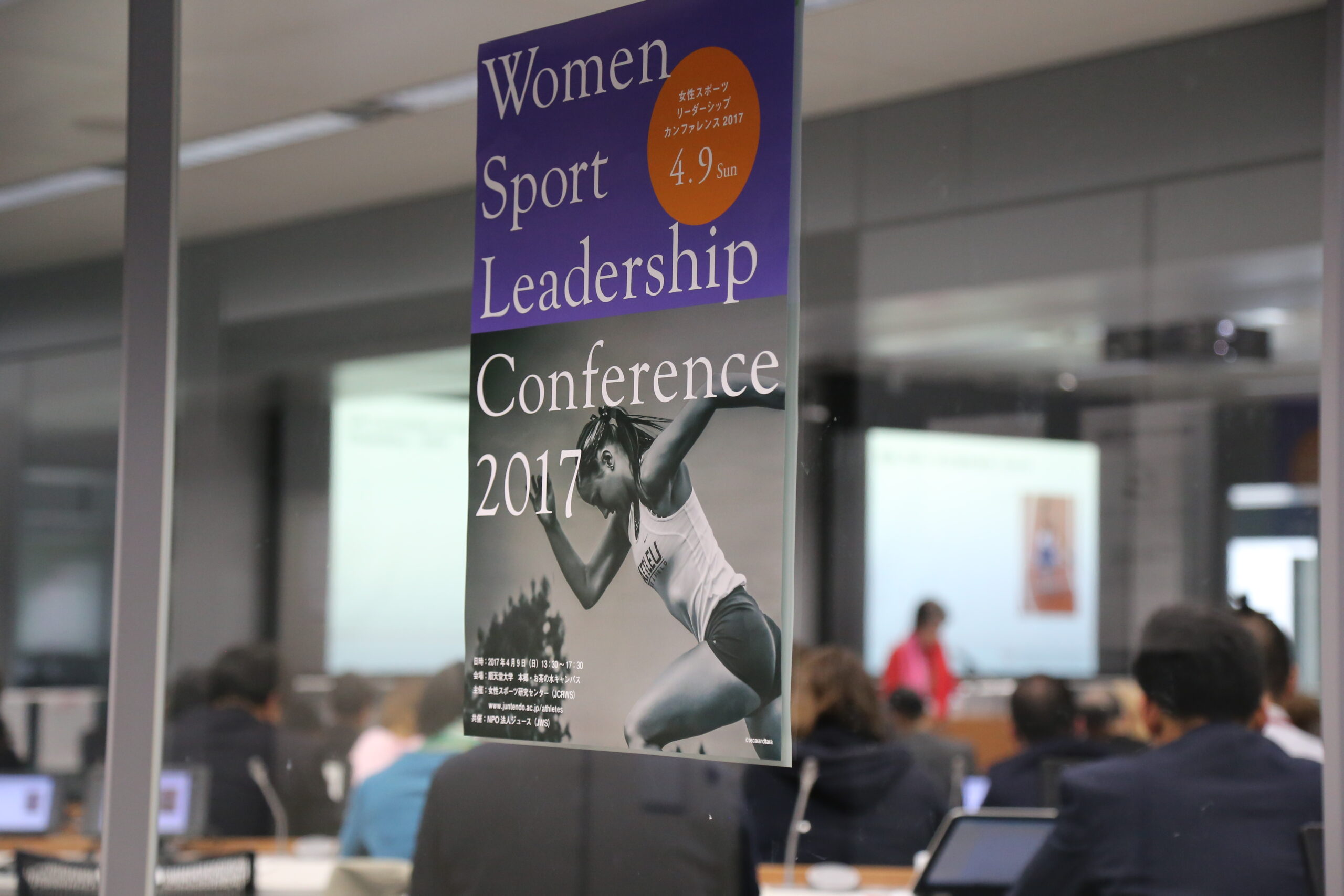
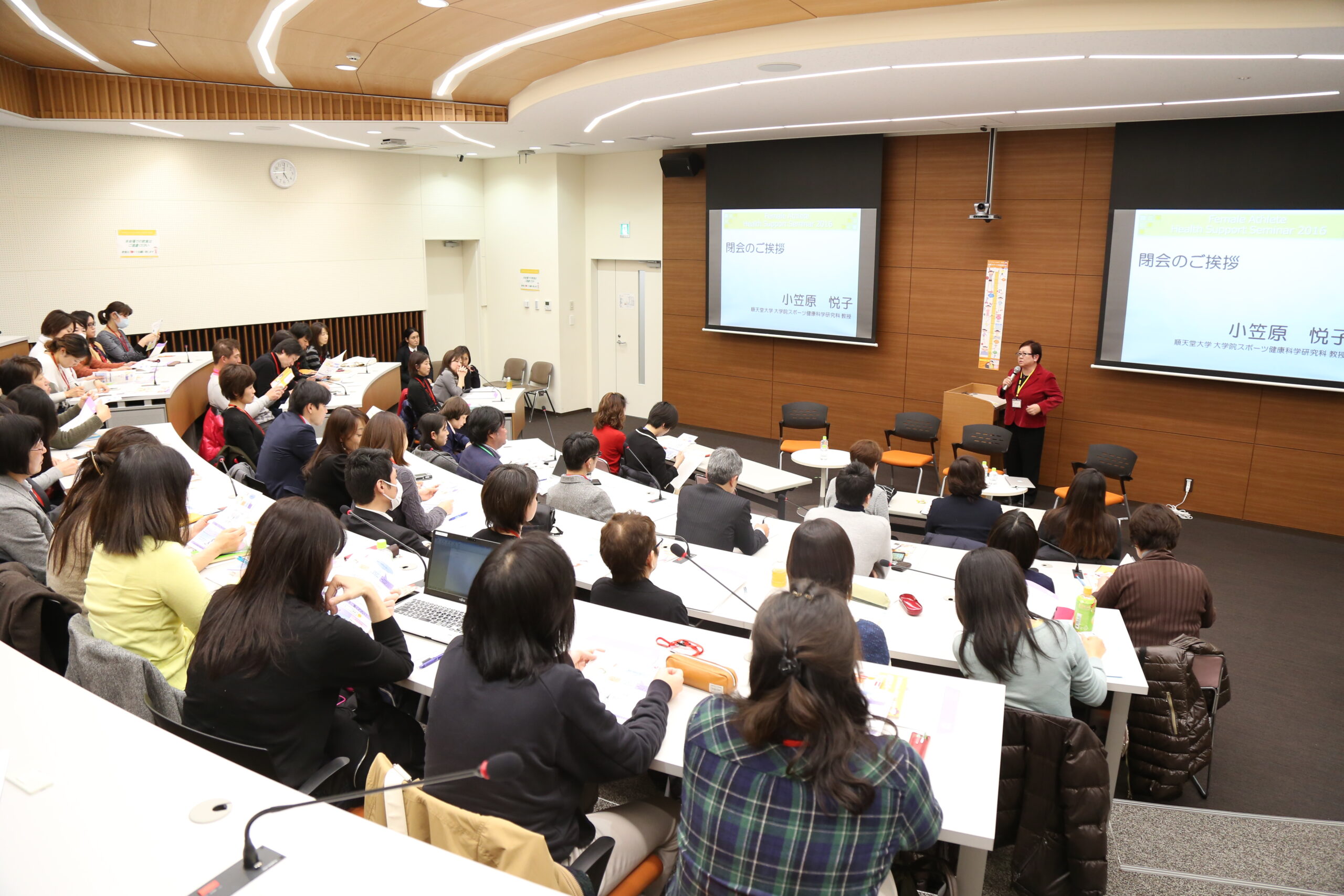
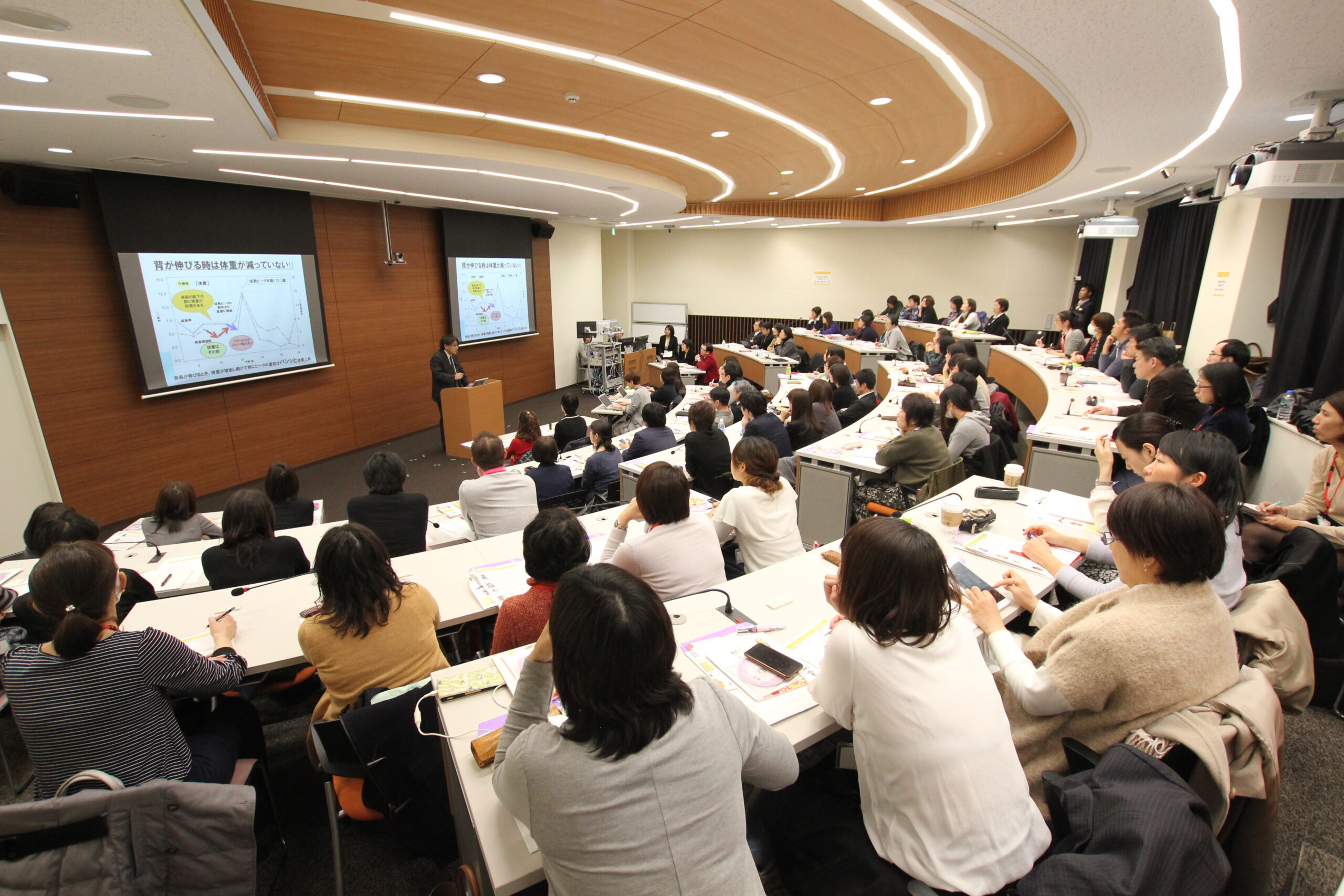
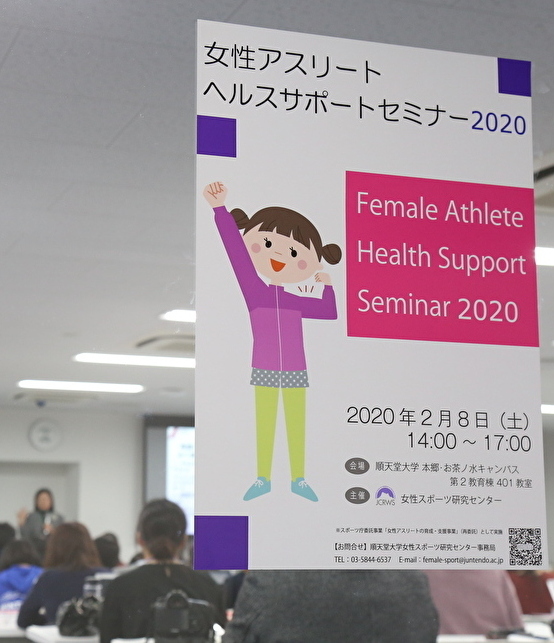
Another key focus of JCRWS is research that promotes exercise habits and motivates participation in sport as a form of exercise, extending sport beyond the realm of competition and contributing to health promotion. In the 2017, study on “How Should We Approach Various Personalities of Japanese High School Students to Promote Their Physical Activity?” project, we surveyed approximately 13,000 male and female students nationwide. Based on their motivation and attitude toward sport, we classified the students into seven personality types. The personality analysis algorithm we developed in this study is currently pending patent approval.
We also conducted a large-scale survey from 2018 to 2020, involving approximately 3,800 women in their 40s to 70s, to further develop the personality classification method. Most women in this age group experience significant physical changes and shifts in family dynamics, making exercise especially effective for regulating body rhythms and refreshing the mind. However, a one-size-fits-all approach is not always effective. Our survey categorized middle-aged and elderly women into eight personality types, each reflecting a unique relationship with sport, attitude, and motivation. This underscores the importance of adopting an individualized approach to starting and maintaining an exercise routine.
The activities of the JCRWS are increasingly extending beyond themselves, thanks to the achievements of the Women Leaders Academy graduates and the research team. These successes have opened doors to new opportunities and challenges while our work continues to expand. As our global initiatives gain prominence, we have also attracted considerable international attention. Notably, we presented the Women Leaders Academy at the “IWG (International Working Group on Women and Sport) Conference” in 2022. In April 2023, the Minister of Youth and Sports in Malaysia, impressed by JCRWS’s efforts, visited the Hongo-Ochanomizu campus for a discussion with Professor Daichi Suzuki of the Faculty of Health and Sports Sciences and Deputy Director Natsue Koikawa.
JCRWS is also committed to actively participating in international research and awareness-raising activities. In collaboration with a global sporting goods manufacturer with whom we have a research agreement, we plan to promote a new coaching method called Body Confident Sport, aimed at helping Japanese girls develop a positive body image.
Moving forward, we aim to expand our activities across Asia and globally. We believe our role is to address the issues that remain unaddressed within female athletics and women’s sports, requiring us to stay alert to global trends and pursue progress with a broad perspective.
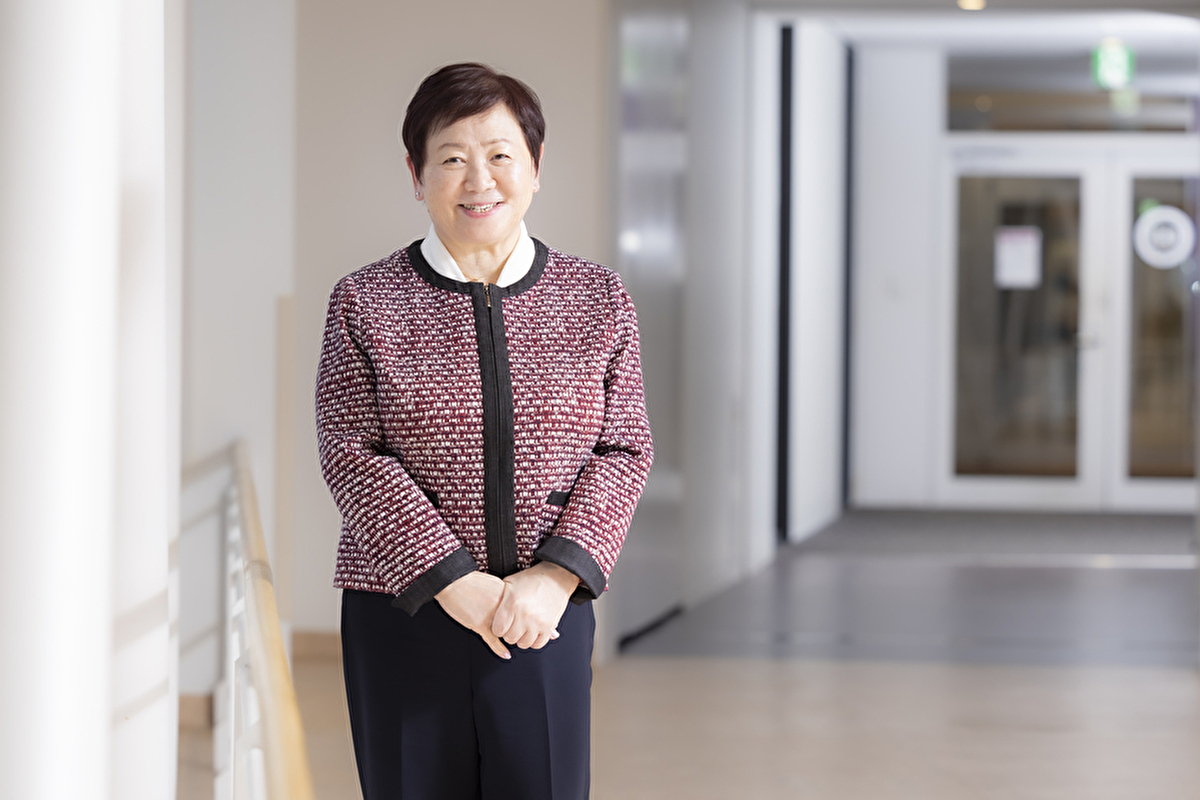
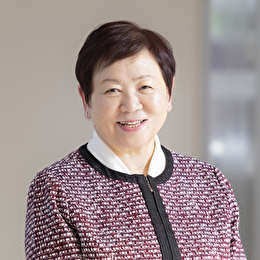
Executive Director, JCRWS, Juntendo University Graduate School of Health and Sports Science
Research Center